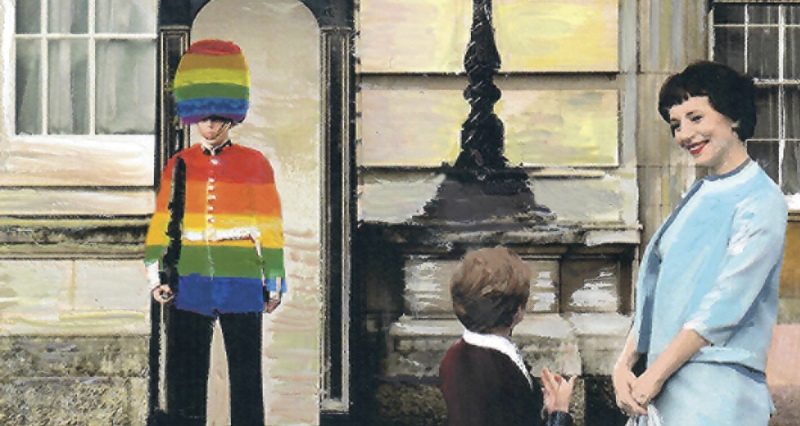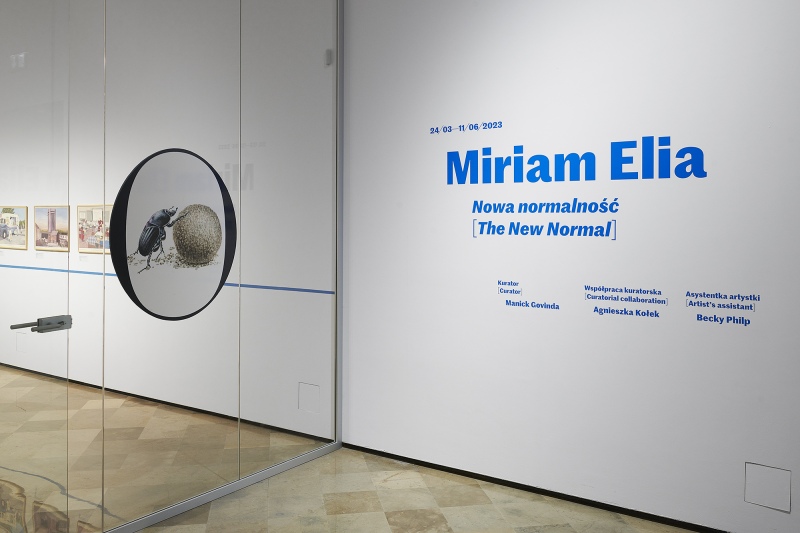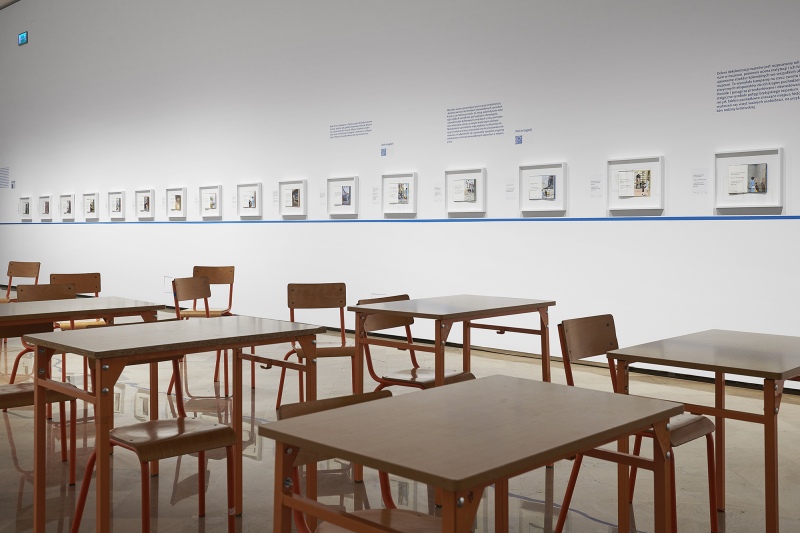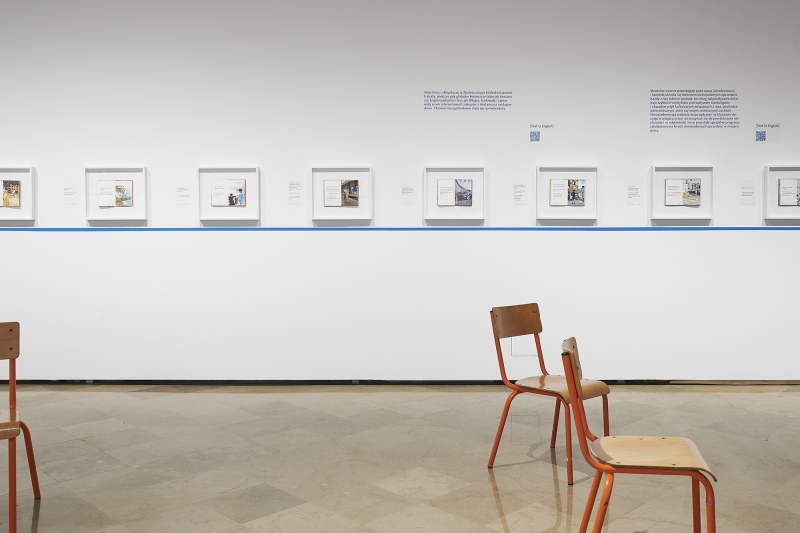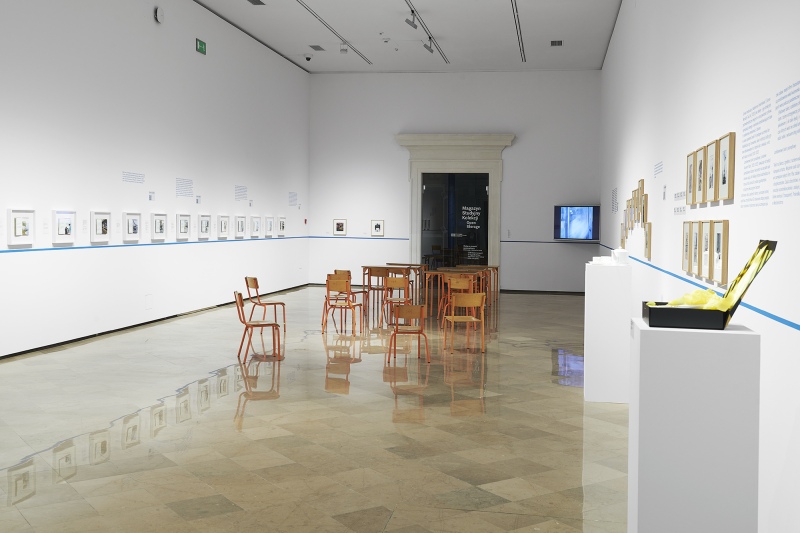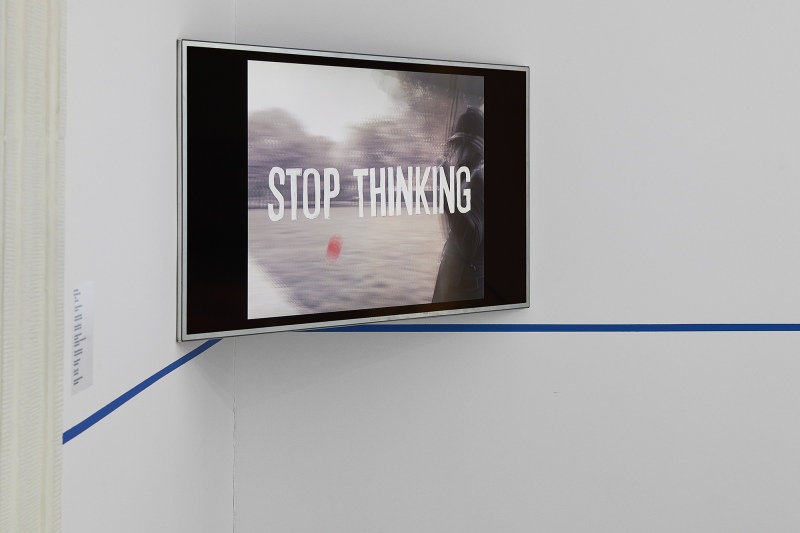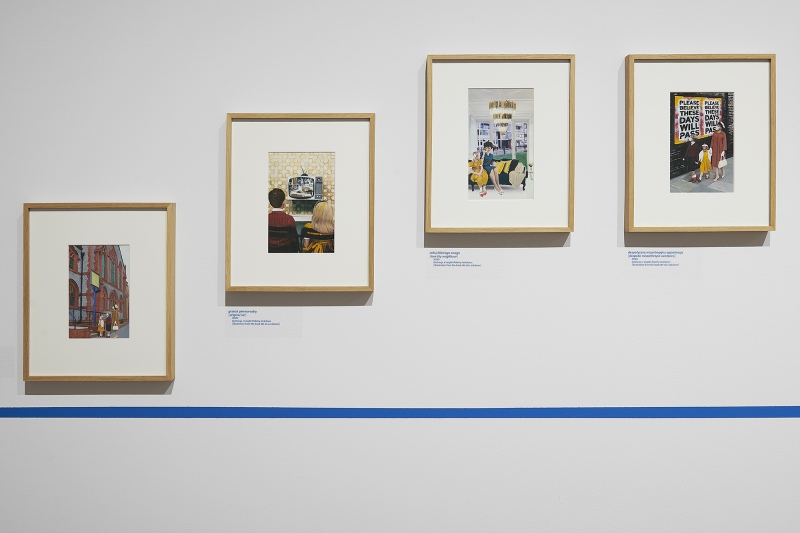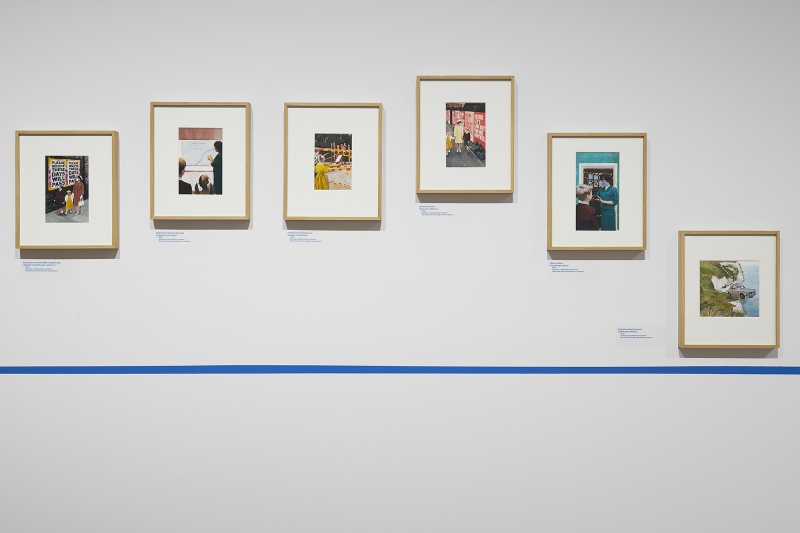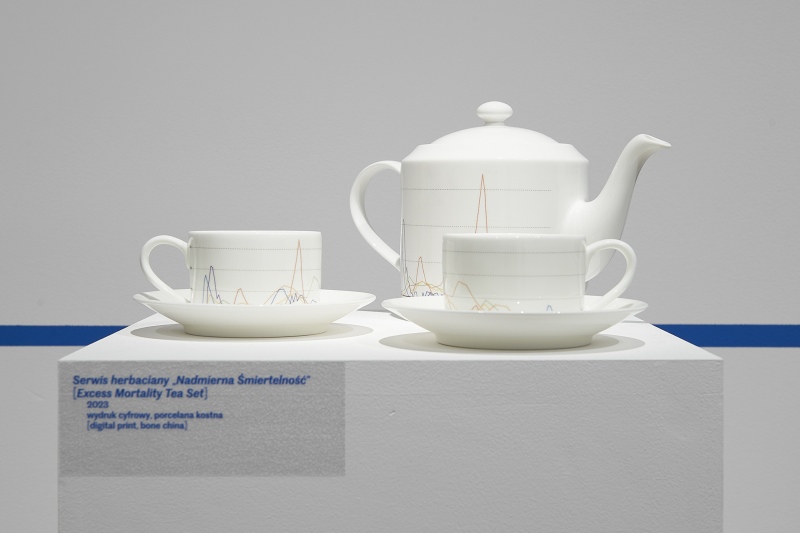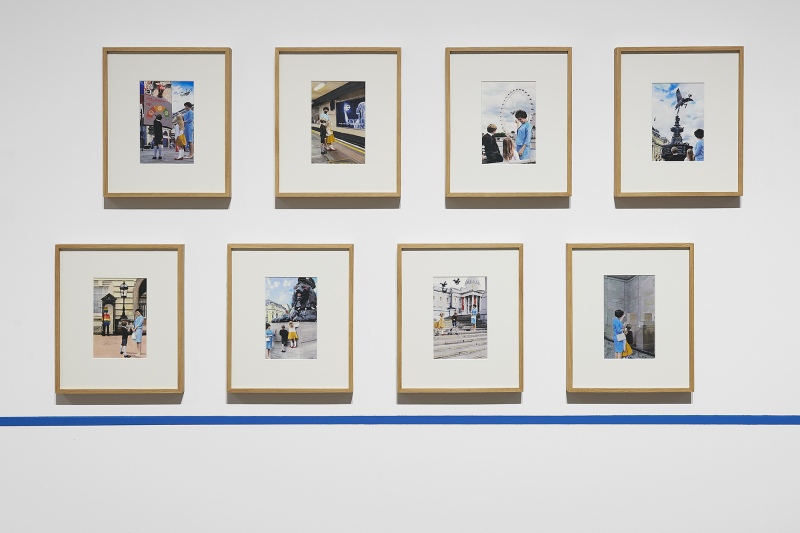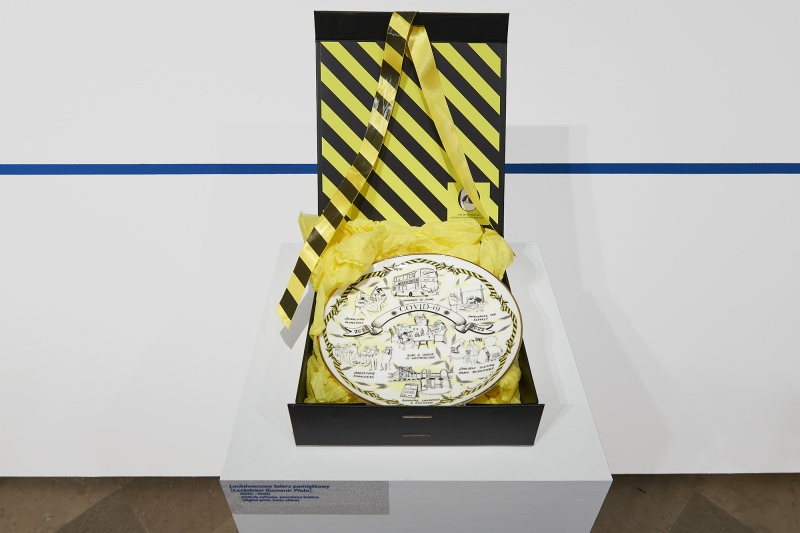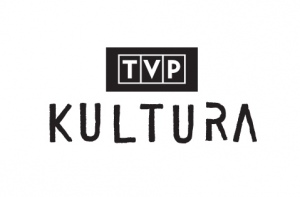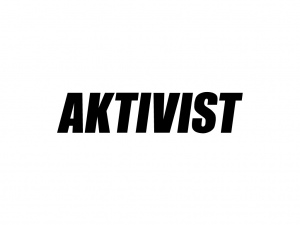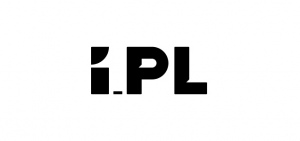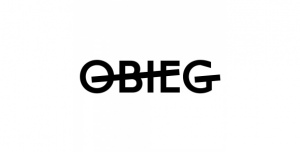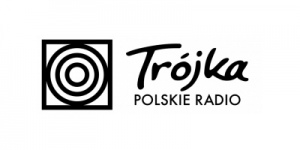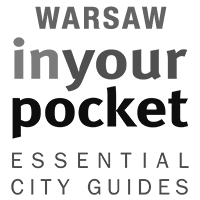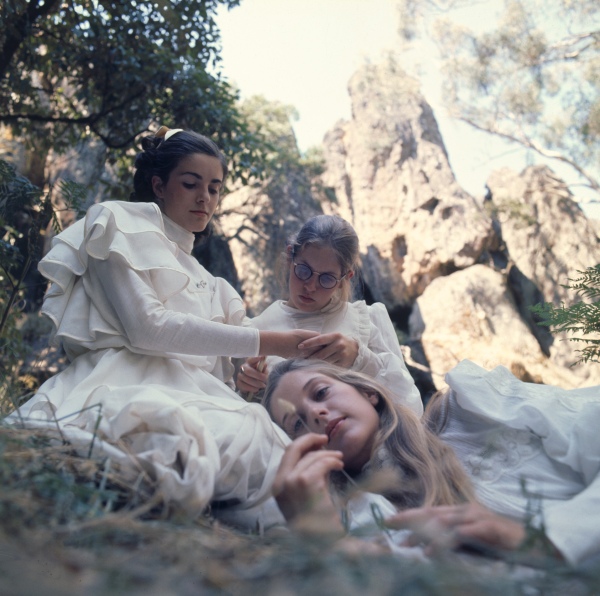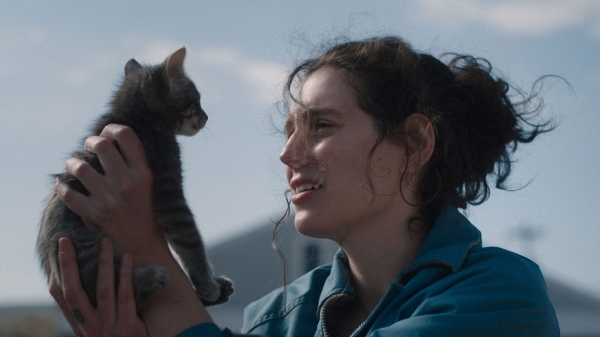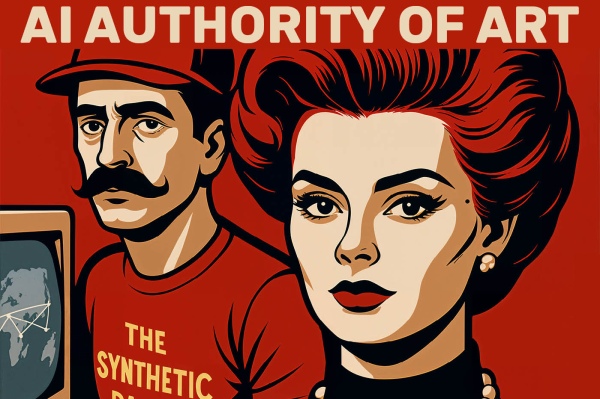24/03—11/06/2023
exhibition
Miriam Elia
The New Normal
- Miriam Elia’s work can be taken as paying homage to a time of optimism, of innocent British nostalgia, of playful learning, a journey of discovery and adventure, through happy images of smiling children exploring and discovering a world of wonder, as it was then. But there is subversive mimicry at play. Miriam’s art satirises contemporary culture, the politics and the ideologies that drive the engines of a globalised world. Her satire is part of a great tradition of political art and graphics that began with the revolutionary invention of mass producing words and images through print for the common man and woman at the beginning of the fifteenth century. Like great political satirists before her; William Hogarth, Francisco Goya, John Heartfield, George Grosz and Karl Arnold come to mind, Miriam Elia pokes fun at the new socio-political order. She questions the new “rules of the game” that was played out during the pandemic and lockdown, she assesses the aftershock and the new world order, otherwise known as ‘The Great Reset’, a global initiative started by the World Economic Forum, which plans to re-order the very fabric of our lives under the deceptively benign mission of increasing co-operation between global stakeholders
- Curator
- Manick Govinda
-
The entire curatorial text is available after clicking “more” →
More
-
Subverting The New Normal
- Satire is moral outrage transformed into comic art.
- Philip Roth
-
- Now that everyday life generally feels like it’s back to normal, the global panic caused by the coronavirus outbreak feels like a horrible dystopian nightmare. The outbreak of Covid-19, which began in China in 2019 and became a global pandemic by March 2020, led to a range of worldwide measures of lockdown, the closure of schools, universities, offices, public events, public gatherings, concerts, religious services, museums, galleries, concerts, travel, funerals, the dying – I could go on, it is a collective universal memory, it stunned the entire world.
- In cultural circles, hardly anyone dared to question the state-approved science, such as the efficacy of cheap, mass-produced masks in containing the virus, or the inhumanity of social distancing. Miriam Elia is one of those minority voices, she questions and comments on the state of the western world through humour, by affectionately borrowing the style and aesthetics of the much-loved children’s Key Words with Peter and Jane educational books from Ladybird, which were launched in 1964.
- Miriam Elia’s work can be taken as paying homage to a time of optimism, of innocent British nostalgia, of playful learning, a journey of discovery and adventure, through happy images of smiling children exploring and discovering a world of wonder, as it was then. But there is subversive mimicry at play. Miriam’s art satirises contemporary culture, the politics and the ideologies that drive the engines of a globalised world. Her satire is part of a great tradition of political art and graphics that began with the revolutionary invention of mass producing words and images through print for the common man and woman at the beginning of the fifteenth century. Like great political satirists before her; William Hogarth, Francisco Goya, John Heartfield, George Grosz and Karl Arnold come to mind, Miriam Elia pokes fun at the new socio-political order. She questions the new “rules of the game” that was played out during the pandemic and lockdown, she assesses the aftershock and the new world order, otherwise known as ‘The Great Reset’, a global initiative started by the World Economic Forum, which plans to re-order the very fabric of our lives under the deceptively benign mission of increasing co-operation between global stakeholders.
- A selection of original artworks, which became the basis for her two Dung Beetle reading scheme books, We do Lockdown (2020) and her most recent book We see the sights (2022), are on display. Images of Mummy, Susan and John go through a journey of isolation, disengagement, public spaces and buildings marked out by hazard tape.
- Do as you’re told shows a masked mother with her children, looking up at a locked down Church. Atheist Mummy says, “I’m glad the church is shut,” and when her son, John, questions her, she responds that the Christian church uses “fear and guilt to control people.” The state has become the new religion to control and feed fear into its citizens. References to past puritanical religious zealotry is reincarnated into secularist draconian control in Miriam’s art, in the unquestioning mantra that we must “trust the science”; the closure of children’s playgrounds as depicted in playing is hazardous, reminds us of past strands of Protestantism, particularly Calvinist Presbyterian, in Scotland and Northern Ireland, when children’s playgrounds were chained up on Sundays to stop children from having fun.
- Original sin is an uncomfortable image, depicting what looks like a 1960s-70s setting of Susan and John watching an old-style television in their living room. The programme they are watching on the screen is not entertainment, but that of an old man on a ventilator “again”. Mummy, matter of factly instructs them, “that’s what happens if you hug old people,” which makes Susan cry. Many old people died alone while the young were accused of being super-spreaders. Photographer, filmmaker and author of A State of Fear: How the UK government weaponised fear during the Covid-19 pandemic (2021) Laura Dodsworth, wrote: “Beyond counting the dead, how do we count the cost to ourselves? Dying alone in a hospice, last rites delivered in full PPE, no family beside the bed. People unable to visit elderly relatives in care homes for months. Funerals limited to ten people. The young calling suicide helplines, bewildered and traumatised.”
- The only certainty in life is that we will all die, but was the cost of the extreme lockdown and the self-isolation worth it, when joy, happiness, family, community, pleasure and friendship were all sucked out of our lives by the state and “experts”?
- The exhibition takes the viewer on a journey of re-awakening after the excesses of lockdown. Like the characters in the Portuguese writer José Saramago’s 1995 novel Blindness, where an epidemic of unexplained blindness sweeps an un-named country, we stepped out of the darkness in 2022 and were allowed back out again into a world of hope…or despair?
- A comedic dystopia is prominent in Elia’s art. The post-Covid world has transitioned into an unholy marriage between stakeholder capitalism, Chinese style authoritarianism and social justice – the rise of a new power elite. Surveillance, the drive towards a cashless society, the increased obsession with pronouns and gender identity, artificial intelligence, zero carbon directives – after all, Covid-19 lockdowns reduced C02 emissions – Stasi-like snitching and cancel culture, along with the great Amazon takeover, have all become the new normal, turbocharged by Covid-19 restrictions and lockdowns.
- Miriam Elia’s work is a creative act of defiance against the new normal. She encourages us to look beyond the surface of what seems like harmless, benign acts of kindness, whereby minority views are privileged over majority views, unelected experts have more control than democratically elected governments and climate concerns are prioritised over human needs.
- Art thrives on taking risks, pushing against the boundaries of social norms and restrictions. Galleries and museums have become risk-averse and instead have become centres of ‘care’ and ‘safety’, we are now nudged rather than ordered to maintain social distance, to wear a mask, to not pay with cash; trigger warnings dominate all interactions between the visitor and the art. Let’s hope for more artistic dissenters like Miriam.
- Curator
- Manick Govinda
Photos: Adam Gut
Today at U–jazdowski
